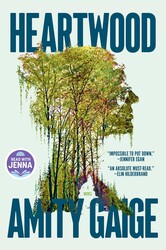Plus, receive recommendations and exclusive offers on all of your favorite books and authors from Simon & Schuster.
Bestsellers
Get a FREE ebook by joining our mailing list today!
By clicking 'Sign me up' I agree to the Terms of Use and acknowledge the Privacy Policy and Notice of Financial Incentive. Free ebook offer available to NEW US subscribers only. Offer redeemable at Simon & Schuster's ebook fulfillment partner. Must redeem within 90 days. See full terms and conditions and this month's choices.
New Releases
Stephen King Reads From NEVER FLINCH
Just Announced
Shop Our Mother's Day Gift Guide
From fiction bestsellers to astounding true stories, gift mom these books perfect for every reader!
SHOP NOWTrending Titles
On Our Radar
Books for Children & Teens
Shop Our Spring Must-Reads
From historical fiction favorites to edge-of-your-seat thrillers, check out our most anticipated spring books!
SHOP NOW








































































